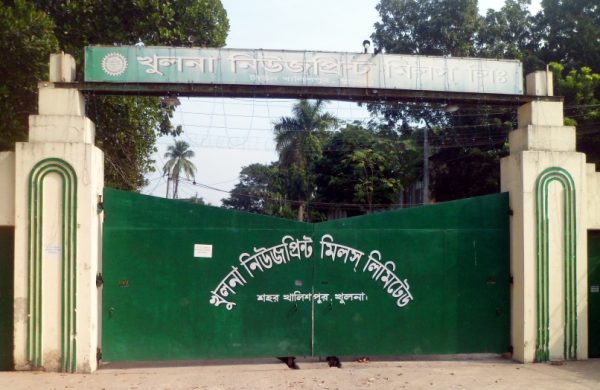Abandoned land of Khulna Newsprint Mills: BCIC to implement project for APIs
- Update Time : Sunday, May 4, 2025

Hosneara Parvin Khuku from Khulna:
The Bangladesh Chemical Industries Corporation (BCIC) has initiated to implement a project for manufacturing of Active Pharmaceutical Ingredients (APIs) with the intension of expanding country’s drug industry.
The proposed factory is likely to build on the abandoned land of the state-owned Khulna Newsprint Mills Limited, which has been remained closure for the last 22 years.
Mousumi Dutta, Additional Chief Chemist of the Planning and Implementation Department at BCIC in Dhaka, confirmed the project’s status, stating that, currently it has remained at the Development Project Proposal (DPP) stage. If the project gets nod from the ministry, it will be forwarded to the Executive Committee of the National Economic Council (ECNEC) for final approval.
It is noted that, due to the rising demand for medicines in the country, 90 percent of the raw materials used in the pharmaceutical industry are compulsorily imported from abroad. Only 10 percent of the materials are produced at some Chattogram and Dhaka based private factories. Additionally, the Essential Drug Company Ltd (EDCL), which supplies medicines for government hospitals, also relies heavily on imported raw materials.
Dutta also emphasized that, this initiative is aimed to address the overall situation and mentioned that the domestic production of raw materials may lead to significant foreign exchange savings.
Md Abu Sayeed, Managing Director of Khulna Newsprint Mills Ltd, indicated that 50 acres of Mills’ lands out of total 88 acres have already been sold to the North-West Power Generation Company Limited. This company has constructed Rupsa 800 MW Combined Cycle Power Plant on it.
Sayeed also mentioned that, if the API factory is established, it will help to create job opportunities for about 1,500 people including both officials and employees of the mills.
Previously, an attempt was taken to build a Triple Super Phosphate (TSP) fertiliser factory on the same land, but that initiative was later canceled.
Sources pointed out that, the cost of manufacturing domestic fertilizer would be higher than the current market price of TSP fertilizer due to import of raw materials from abroad especially from Morocco and Russia.
Furthermore, the river’s navigability at Khalishpur is insufficient for large vessels, as it requires at least 9 metres in depth to import raw materials effectively. Currently, navigability of the River Bhairab will not be above of 3 to 4 metres. Consequently, importing raw materials by using small cargoes or vessels may increase production costs. Sensing the matters, the BCIC and the Ministry of Industries were forced to cancel that project.
Sources from Khulna Newsprint Mills reported that, on December 8, 2019, the then State Minister for Industries, Kamal Ahmed Majumder, promised to construct a TSP fertilizer factory after visiting the abandoned mills site.
It is to be mentioned that, the Khulna Newsprint Mills was established in 1957 on 88.68 acres of land at Goalpara Mouza along the banks of the River Bhairab. The mills went to commercial production in 1959, utilizing Gewa wood procured from the Sundarbans to meet the demand for newspapers, textbooks and wrapper boards etc. At its peak, the mills had an annual production capacity of 48,000 tonnes and remained profitable for over four decades. However, it started incurring losses in 1992.
The situation worsened when the government withdrew a 75 percent import duty on newsprints during the 1995-96 fiscal year, leading to a surge in imports and a decrease in demand for the newsprints produced by Khulna Newsprint Mills. Despite the declining demand, the mills managed to continue operations for some time. The mill faced continuous losses, amounting to Tk284 crore from 1995 to 2002. Eventually, due to ongoing financial difficulties and lack of necessary capital, the then government permanently closed the mills on November 30, 2002, leaving approximately 3,000 employees jobless.
Md Rafiqul Islam, the joint convener of the Khulna Newsprint Mills Raksha Sangram Parishad, stated that, the dismissed workers had formed a Sangram Parishad in an effort to revive the mills. They have submitted written application to various authorities including the Khulna Deputy Commissioner’s office seeking to reopen the mills.
President of Greater Khulna Development Action Coordination Committee (GKDACC) Sheikh Ashraf-uz-Zaman said that, the people of Khulna had been staging several demonstrations including rally, human chain and various other movements for long demanding resume of the mills’ operation, but to no effect. In contrary, the government has moved to do alternative on the abandoned land.
A new factory may be built at the newsprint mills. But, the effort will be foiled, if mills go on operation again, Zaman added.












